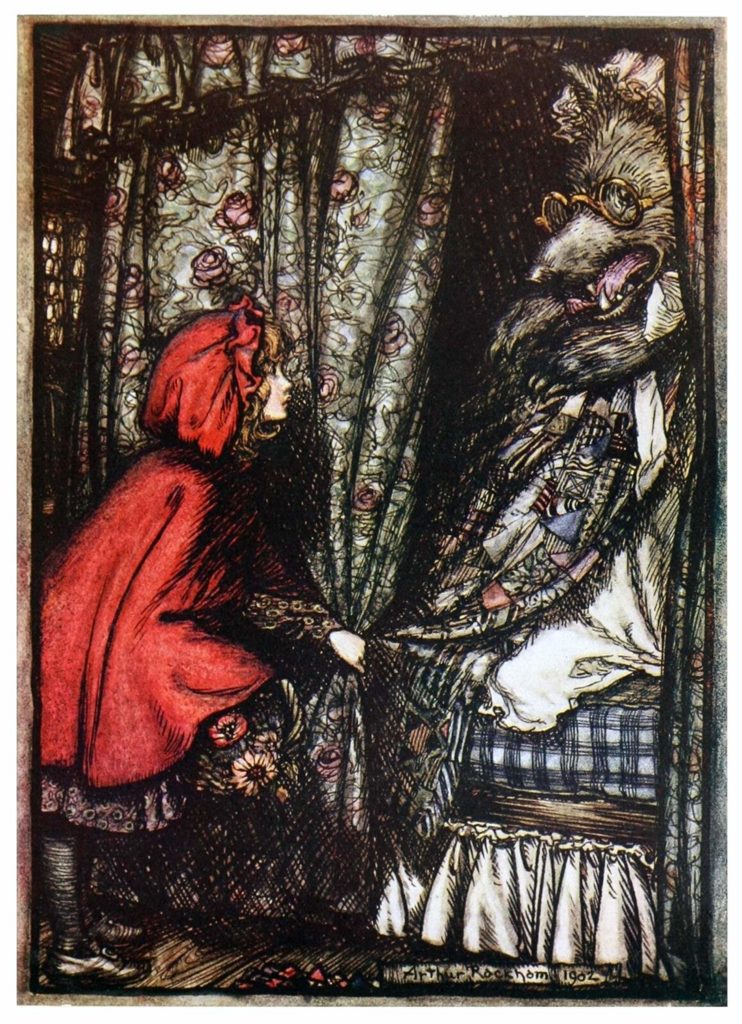Gratitude is Not Enough!
Jessica Bennett’s Gender Letter appeared in my inbox a few weeks ago. It was first published in the New York Times in May 2018, but I don’t question why it presented itself to me this April. Books and articles often pop up just at the perfect time. (https://www.nytimes.com/2018/05/31/us/abby-wambach-commencement-speeches-women.html)
Bennett’s column has a provocative title: “Stop Being Grateful! Graduation Advice from 12 Women.” But I always thought being grateful was a good thing—didn’t you?
Gratitude Is A Gender Thing
Gratitude is a big “thing” today—and it’s becoming big business. You can purchase gratitude plaques for the wall, gratitude journals for the bedside, and there is plenty of research out there telling us how being grateful will improve our physical and mental health. Here’s just one article I pulled up touting the benefits of gratitude: https://www.forbes.com/sites/amymorin/2014/11/23/7-scientifically-proven-benefits-of-gratitude-that-will-motivate-you-to-give-thanks-year-round/#249eb5d8183c).
Yet, Bennett doesn’t see it quite that way. She has a problem with gratitude. To her, it’s a gender thing. And, I think, Bennett has a point.
“I have always disliked the word ‘grateful,’” she begins the piece. “I rarely hear my male friends use this word, and yet I often hear it roll off the tongues of women I know.”

Bennett goes on to give examples of how gratitude “rolls off” the female tongue: “I’m grateful for the opportunity, they will say, upon earning (key word: earning) an opportunity. I’m grateful to have been recognized, a friend will note, upon being recognized for a thing she deserved to be recognized for. I’m grateful for the promotion, says the woman who in fact busted her butt to get it.”
Women Tend to Credit a Good Deal of Their Success to Luck
“Gratefulness,” in Bennett’s thinking, implies an underlying “luck” factor, and she points an unfortunate psychological phenomenon: women tend to credit a good deal of their success to luck. Men, one the other hand, more frequently ascribe their successes to their own hard work.
The flip side of this phenomenon has also been demonstrated in numerous studies: women attribute their failures to their own mistakes, while men are much more likely to see the culprit as a stretch of bad luck.
There is a whole body of psychological research that supports these gender differences in thinking: attribution theory. (A simple explanation of attribution theory can be found below or in this article: https://www.simplypsychology.org/attribution-theory.html.)
It All Comes Down to One Question: “Who or What Is Responsible?”
How do we explain the causes of behavior and events? Where do we lay both the credit and the blame? According to attribution theory, there are two very different explanations that we turn to.
One is the dispositional—or internal—cause. Disposition/internal causes include a person’s personality, character, or ability. In other words, “He got the promotion because he works hard/showed company loyalty/is intelligent.”
The second is the situational—or external–cause. These causes are typically considered outside the person’s control and include environmental factors such as luck: “She got the promotion because she was in the right place at the right time,” or “the company needed to hire woman to fill the spot.”
Many factors determine which explanation people favor–dispositional or situational–gender being just one of them. (The choice of explanation also depends on which behavior, event, or individual you are “explaining.”) I find this stuff fascinating. If you do too, just Google attribution theory and start reading!
Not Being Able to Own Our Own Accomplishments Often Leads to What Is Known as Imposter Syndrome
Unfortunately, though, this is not just the “stuff” of psych textbooks. There are many potentially damaging consequences that result from favoring one perspective over the other.
Not being able to own our own accomplishments is one of these detrimental outcomes, and it often leads to what is known as Imposter Syndrome—the feeling that you are a fraud. Accompanying this painful feeling is the fear that you are going to be “found out.” (https://www.psychologytoday.com/us/blog/real-women/201809/the-reality-imposter-syndrome.)
If you suffer from this “credit disorder” (my term), you are in good company! Many successful women—and men—are afflicted. Michelle Obama and Tina Fey are just two accomplished women who have talked about struggling with these feelings. (Stayed tuned. Imposture Syndrome will definitely be the topic of a future blog post.)
I Am Most “Grateful” to Bennet for Introducing Me to Abby Wambach.
While I really appreciated Bennet’s take on the downside of gratitude, I am most “grateful” to Bennet for introducing me to a truly amazing woman—Abby Wambach. Wambach made it into Bennett’s article for two reasons: she gave a drop-dead speech to Barnard’s (all-female) 126th graduating class in 2018 and she has lot to say about gratitude.
A two-time Olympic gold medalist in soccer, a FIFA World Cup Champion, and the highest all-time international goal scorer for both male and female soccer players—at an astonishing 184 career goals—Wambach, now retired from soccer, is a New York Times bestselling author, speaker, and, as her website describes her, “an activist for equality and inclusion” (https://amywambach.com).
What If My New Team Was All Women Everywhere?

Wambach’s first book Forward published in 2016, is a memoir of her journey from a kid growing up in Rochester, New York, to a world-class/world renown athlete, to a “fierce advocate for women’s rights and equal opportunity.” Her second book, Wolfpack, just released this April (maybe that’s why Bennett’s article appeared in my inbox last month!) is both memoir and “how to.” Wambach shares how she became a leader by changing the rules and challenges all women to do the same.
(Wolfpack is a short, powerful read based on that shorter and equally powerful Barnard graduation speech. If you have not read the speech, please do! https://barnard.edu/commencement/archives/2018/abby-wambach-remarks
Or, if you’d rather hear Wambach herself, here’s that link: https://abcnews.go.com/GMA/Culture/abby-wambach-tells-women-wolves-world-fiery-commencement/story?id=55379570.)
In the introduction to Wolfpack, Wambach asks three questions:
- What if my time on the national team was just practice for a bigger game?
- What if I could find a way to translate our team’s culture to more women?
- What if my new team was All Women Everywhere?
Sign me up!!
“We Were Not Only Champions on the Field—We Were Champions of Each Other”
Wambach’s team culture was certainly about winning, but it was also about winning “with joy, honor connectedness, commitment, and sisterhood. We were not only champions on the field—we were champions of each other.”
It was not only their amazing record but their support of each other that made U.S. national women’s soccer team special. Wambach wants the same for “women everywhere.” Together, she believes, we women can save the world. And she looks to nature for the example: the wolfpack.
Wambach was inspired by a TEDTalk about the reintroduction of wolves to Yellowstone National Park in 1995 (https://blog.ted.com/video-how-wolves-can-alter-the-course-of-rivers/). Wolves had been absent from the park for seventy years, which caused all sorts of unexpected trouble. The deer population exploded because they no longer had predators, vegetation in the park was dramatically reduced because the deer’s grazing went unchecked, and the reduced vegetation led to erosion of the riverbanks.
“WE. ARE. THE. WOLVES.”
In came the wolves. Not only did the wolves thin the deer population, but the wolves’ introduction changed deer behavior. Because they now had predators to avoid, deer stayed away from the valleys where they would be most vulnerable. Vegetation began to grow as a result; birds and beavers returned, as did otters, ducks, and fish. (The river dams that the beavers built provided habitats for other species.) The rivers themselves changed too. As riverbanks became fortified by the new vegetation, the rivers “flowed freely again.”
Wolves, who had previously been perceived as a threat to the Yellowstone’s ecosystem, ended up saving the park. Wambach sees a parallel here: “Women—who are feared by many to be a threat to our system—will become our society’s salvation … WE. ARE. THE. WOLVES.”
Yes!
Lessons from “Little Red”

Wambach relates her connection to another story regarding wolves—one that has shaped many of us: Little Red Riding Hood. Wambach, like most young girls in our culture, was taught to follow the rules and stay on the path, just like Little Red Riding Hood was warned. But Little Red became curious and left the path. That’s when the trouble began. She happened upon the Big Bad Wolf, and everything went downhill from there. Moral of the story: Girls—stay on that straight and narrow. Don’t break rules. And if you dare to engage your curiosity … look out!
“I stayed on the path out of fear,” Wambach told the audience of Barnard graduates, “not of being eaten by a wolf, but of being cut, being benched, losing my paycheck.
If I could go back and tell my younger self one thing it would be this: ‘Abby, you were never Little Red Riding Hood; you were always the wolf.’”
“There Were Suddenly New Rules to the Game—Written by Those Women …”
Wambach feels blessed to have known many “wolves,” women who have made their own paths. Two years before she joined the national team, the players approached FIFA about the possibility of scheduling games in NFL stadiums. FIFA told the team that their idea was ridiculous—a women’s team would never be able to fill enough seats. (Wambach adds this note: “When they say you’re ridiculous, you know you’re onto something.” How true!)
The team did not take no for an answer! They started their own marketing campaign to drum up interest. It worked. They soon played to sold-out stadiums. In fact, their last game, at Pasadena’s Rose Bowl, drew more that 90,000 people and was the “most-watched soccer game in the U.S. to date, including any men’s World Cup matches …” This illustrates how women create change: “There were suddenly new rules … written by those women”
“I’m Less Interested in Banging Down the Door of Some Man Who Doesn’t Want Me There. I’m More About Building My Own House.”
As women, we cannot be afraid to rewrite existing rules. If we live by the old rules, according to Wambach, “the game will remain the same.” Wambach quotes Ava DuVerney, the first black woman director to have her film nominated for an Oscar for Best Picture—the film was Selma. (DuVerney’s film 13th was nominated for the Academy Award for Best Documentary Feature. If you haven’t seen it, I highly recommend it. It is not an easy film to watch but may change the way you think about mass incarceration—it certainly did for me. 13th is available on Netflix.)
Ava DuVerney on women and achievement: “Regarding glass ceilings … I’m mostly bolstered by folks who create their own ceilings. I’m less interested in banging down the door of some man who doesn’t want me there. I’m more about building my own house.”
That just gave me the chills!
Lots of things that Wambach includes in Wolfpack give me the chills. In next week’s post, I will share her “Wolfpack Way” and include some ideas of how we—women of a certain age—can apply her eight rules to the lives we are living today.
Wambach on Gratitude
But first … Wambach on gratitude. Spoiler alert—it’s her Rule Number 2: “Be grateful for what you have AND demand what you deserve.” More on that next week!
Until then—I’d love to hear what you think … about wolves, about new rules, about gratitude … or anything else that’s on your mind! Please write a comment or send me an email.
Have a wonderful week, and don’t be afraid to BE. THE. WOLF!
Diane



Hi, Diane
Both of these women sound awesome and I will definitely follow the links to them. Just a thought about gratitude. To my mind, there are two kinds of gratitude. One is the healthy kind that keeps us from being overly narcissistic, so we realize that much of what we get in life is not due to our inherent wonderfulness and we keep our sense of entitlement in check. But Bennett is pointing out that many women feel so inherently undeserving, set such high standards for themselves, that they don’t take their rightful place. Honestly, I don’t want to see myself as either Little Red Riding Hood or the Wolf.
Thanks, Shlomit, for your comment. I really like your “two kinds of gratitude.” Stay tuned for next week–you may change you mind about not wanting to be the wolf.
Unfortunately our society appears to be becoming more and more insidiously or overtly misogynous especially with the laws changing by old white men and disenfranchised women in our southern states. I don’t see any reason for women to be grateful even with the dubious gains fron the “Me Too” movement. Empower yourself and own your successes.
Thanks for your comment Steven. There have been some very scary movements backwards in our country recently regarding women’s rights. The silver lining is that women are banding together to empower ourselves and each other. We can be grateful for our voices and demand our rights.
Another amazing blog!! Although I disagree with some of the pounds here, Wambach makes a compelling case for ther gender bias of our vocabulary. I practice sincere gratitude daily and love others (nonbinary, male, and female) who do. Thank you for the opening of this discussion!
Thanks, Janet! I thought this one would get some push back! Bennett is more uncomfortable with the word gratitude itself because of the gender implications. Wambach freely expresses gratitude but doesn’t want women to stop there!
Much more to come on this next week. It’s definitely a conversation worth having!